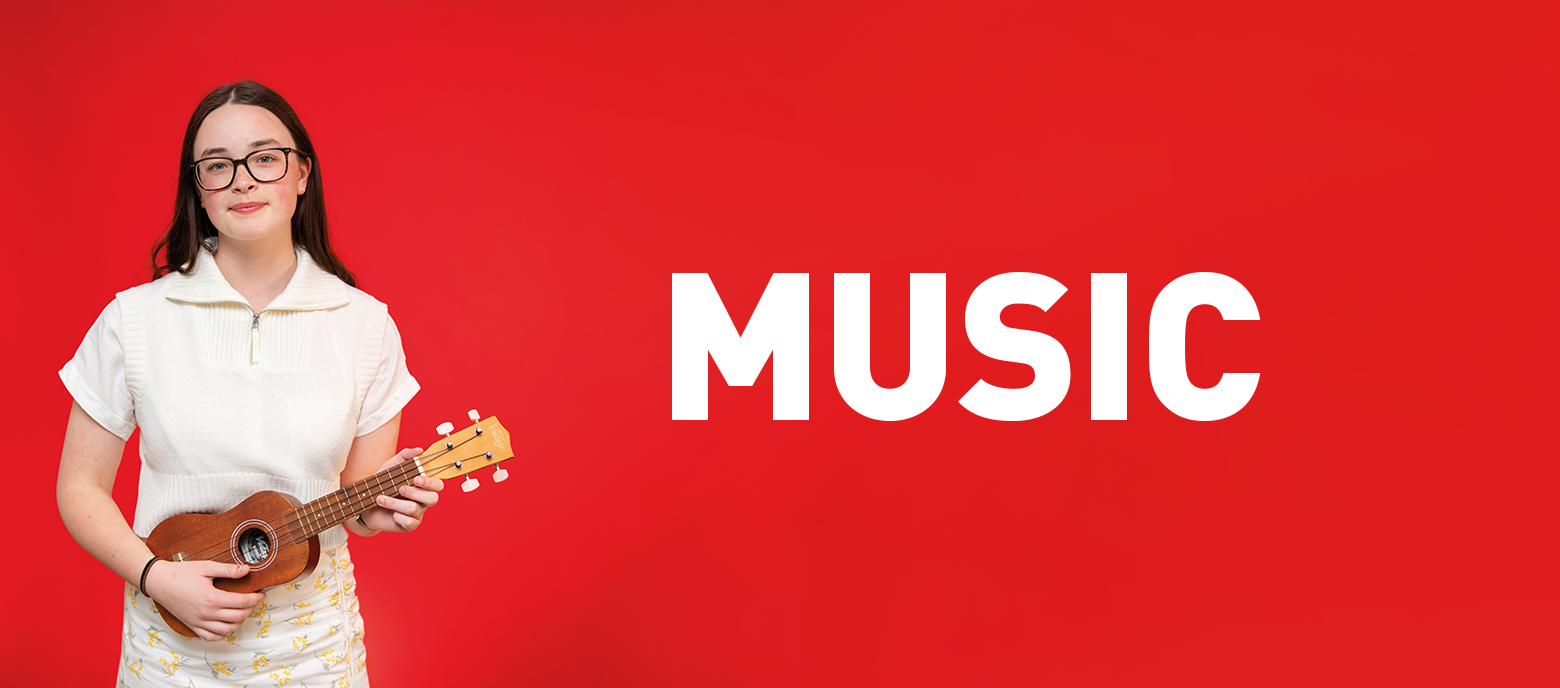Examination Board: Eduqas
Many students choose to study Music at KS5 because of their innate love for the subject, the challenge and stimulation it provides, and because it is a subject widely respected by universities. Some of the skills involved are unique to the subject, but many other disciplines complement the work of other subjects. A-level Music is strongly recommended for anyone who enjoys performing, composing and listening to music, and is mandatory for anyone who hopes to pursue a performing course at Music college or wishes to take an academic Music course at university.
Although some students may study A-level Music without having any other prior qualification, it is helpful to have studied Music at GCSE. We recommend that you can perform to Grade 6 standard before starting the course. You will also need to be able to write English fluently, have a good ‘musical ear’ (e.g. completing aural tests successfully within your performance exams) and have had experience composing. Most importantly, you should be keen to explore and evaluate a wide range of musical styles, both as a listener and as a participant.
A-level Music is an excellent foundation for a range of careers in the arts, which include performing, composing, teaching, musical research, journalism, arts management and music therapy. Music is also unusual in that many professionals from other walks of life are often enthusiastic and highly accomplished amateur musicians and, while many students intend to work in a different field, they find that A-level Music gives them the background to pursue a lifelong interest in playing and listening. It is worth noting that in 2011, the Confederate of British Industry outlined the seven skills that define employability: self-management, teamwork, business and customer awareness, problem solving, communication, numeracy, and IT skills. Music students develop all seven of these. By this measure, music graduates are among the most employable of all.





